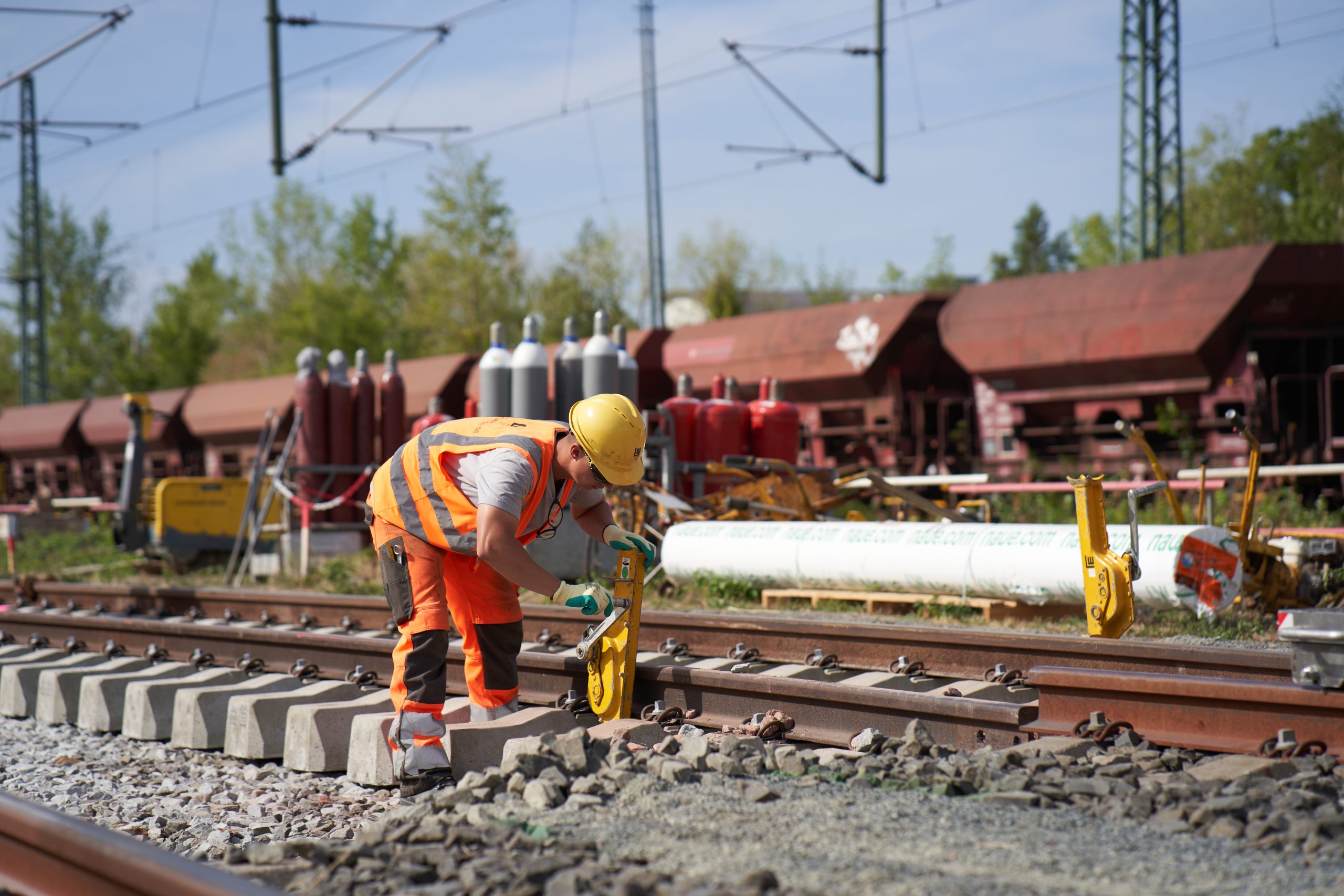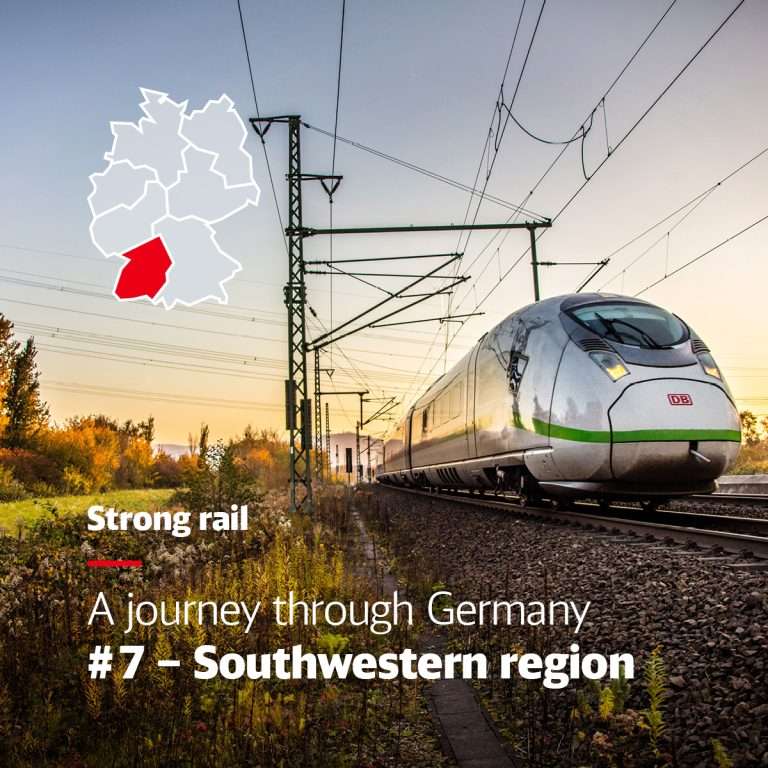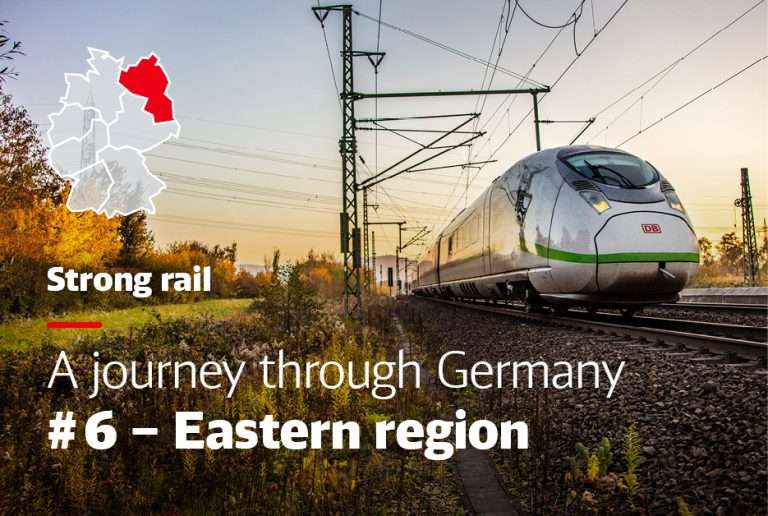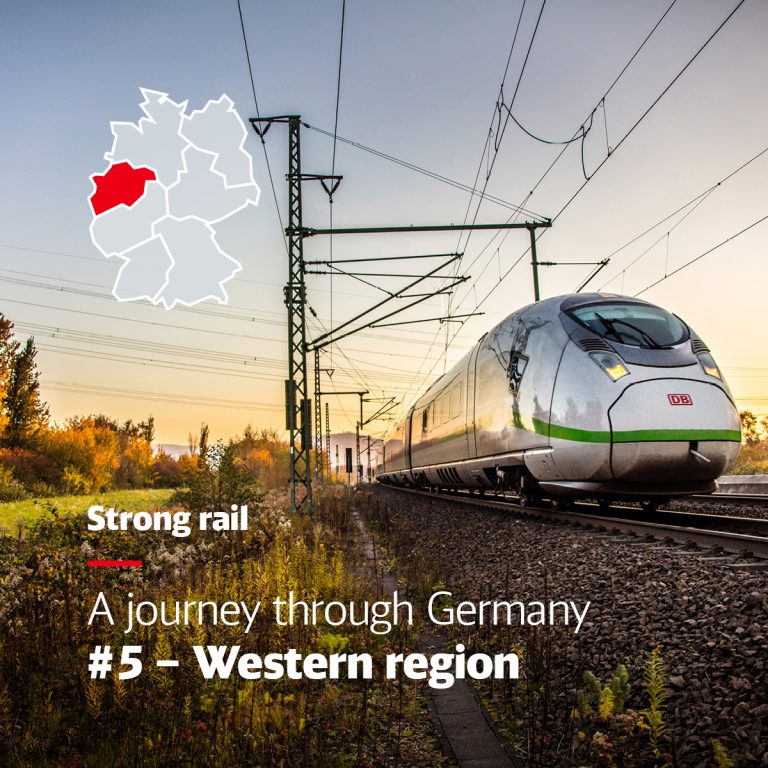Deutsche Bahn (DB) has presented ambitious plans to modernize the rail network in Germany in order to significantly improve the quality and punctuality of passenger and freight transport. The focus is on the general overhaul of high-performance corridors, which play a decisive role in promoting environmentally friendly rail transport due to their central location and high usage.
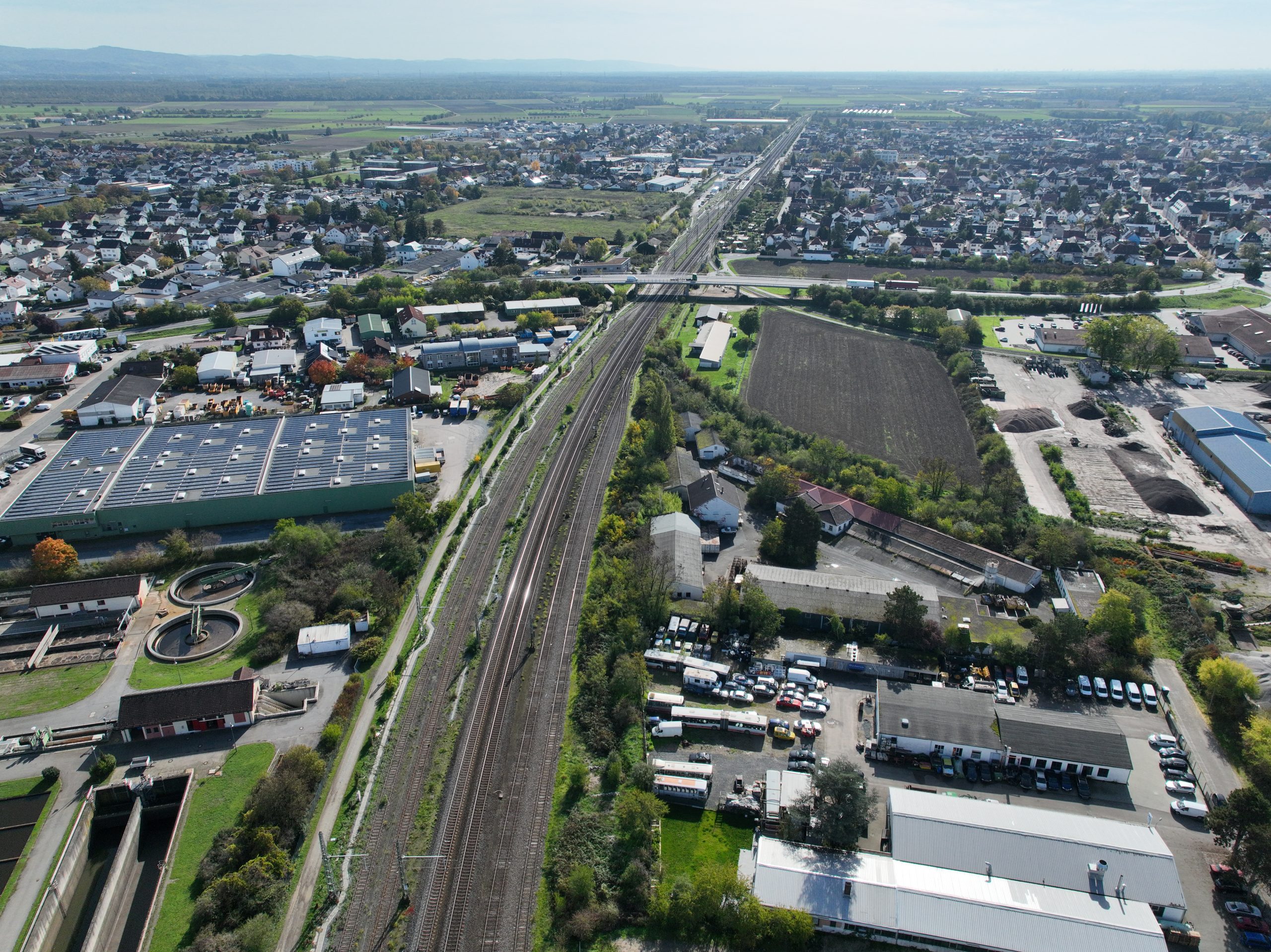
Contact
DB Engineering & Consulting
EUREF-Campus 14
10829 Berlin
Germany
These high-performance corridors are not only heavily frequented, but also highly relevant for the availability and stability of the overall network, which is why their modernization plays a key role for the future of rail infrastructure.
The upcoming measures, as a part of the largest infrastructure program since the 1994 Rail Reform, will begin with the general overhaul of the heavily used sections of the Riedbahn between Frankfurt/Main and Mannheim. The Hamburg-Berlin and Emmerich-Oberhausen routes will follow in 2025. DB wants to tackle at least two more corridors per day by 2030. The routes are selected and prioritized in close coordination with the federal government and its authorities as well as the rail companies, local transport authorities and associations.
Goals of the general overhaul for improved rail infrastructure
The objectives of the general overhaul are diverse and range from raising performance and increasing punctuality to creating more capacity for passenger and freight traffic. The bundled renewal of tracks, switches, overhead lines and equipment for digital rail operations is intended not only to improve the infrastructure, but also to increase flexibility in long-distance, local and freight transport.
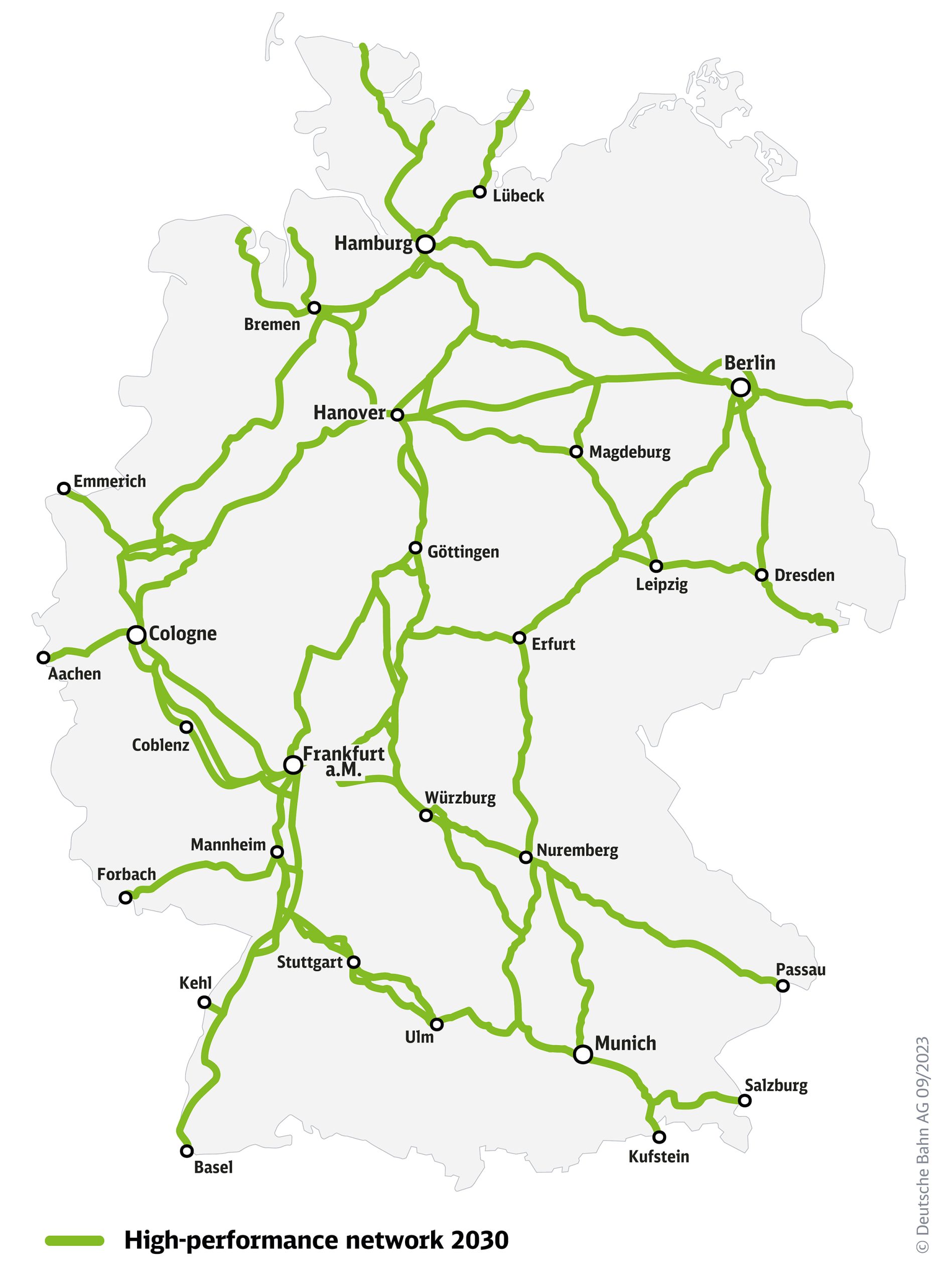
In order to carry out the work efficiently and on schedule, full closure of the routes is planned in each case. During this time, extensive renovation and modernization work will also be carried out at the stations in order to provide passengers and freight operating companies with an improved and accessible infrastructure as quickly as possible. Despite all the challenges, the renovation of the rail network by 2030 is an important contribution to the sustainable improvement of the infrastructure and the best possible preparation for the increasing demands of modern transportation.
The routes for general overhaul are selected in close consultation with the federal government, authorities, rail companies and associations. This cooperative approach makes a decisive contribution to developing a holistic concept and minimizing the impact on passengers and freight traffic.
The investments in the general overhaul of these high-performance corridors will not only have a noticeable impact, but will also have a positive effect on the entire rail network. More efficient routes, more punctual trains and increased capacities are important steps toward sustainable and modern mobility, which will further strengthen rail as an environmentally friendly transportation solution.
The general overhaul of the heavily used corridors is a long-term project that is set to cover a total of 40 route sections by 2030. This will pose major challenges not only for DB, but also for the construction and rail industry. Nevertheless, there is no alternative to clearing the renovation backlog in order to sustainably improve the rail infrastructure and prepare it for the increasing demands placed on rail as a mode of transport.
The key features at a glance
- The renovation of the heavily used network and the associated upgrade to a high-performance network with a length of 9,000 kilometers.
- The resolution of the investment backlog and the upgrading of the rail network to smaller cities.
- Capacity-increasing measures such as additional crossovers, switches and denser signaling for more stability and better train services.
- The digitalization of the rail network with the Germany-wide rollout of the European Train Control System (ETCS). It creates up to 30 percent more capacity on the existing network.
- The targeted upgrade and new construction of routes to resolve bottlenecks and thus also make a Germany-wide integrated regular-interval timetable possible.
- Large-scale modernization of stations throughout Germany and upgrading to stations of the future with better comfort and a wider range of services for passengers along the high-performance corridors and in the extended network.
Maintenance concept for the Riedbahn as part of a comprehensive program
An important step in this direction is the upcoming general overhaul of the Riedbahn, a 70-kilometer line between Frankfurt am Main and Mannheim, in 2024. This busy connection links important metropolitan regions and is used by around 300 long-distance, freight and local trains every day. The strain on the Riedbahn as a bottleneck has an impact on the entire rail network and makes urgent renovation unavoidable.
The planned maintenance concept for the Riedbahn is the beginning of a comprehensive program. Together with the federal government, authorities, rail companies and local transport authorities, DB has drawn up a plan for the renovation of a total of 4,200 kilometers of track. The capacity utilization and condition of the routes play a decisive role here.
DB E&C is also involved in various areas of this major infrastructure program, including design , construction supervision , validation and assessment and environmental & geoservices.
